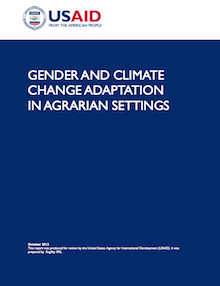Bioversity International

Bioversity International is a research-for-development organization that provides scientific evidence of the role that on-farm and wild agricultural and forest biodiversity can play in a more nutritious, resilient, productive and adaptable food and agricultural system.
Our purpose is to produce scientific evidence to shape decisions and actions to benefit smallholder farmers and rural communities living in poverty around the world. We are working towards a world in which smallholder farming communities in developing countries of Africa, Asia and the Americas, are thriving and sustainable.
Bioversity focuses on rain-fed farming systems, primarily managed by smallholder farmers, in areas where large-scale agriculture is not a viable option. Its research influences policy decisions and investment in agricultural research, from the local to the global level.
Founded in 1974, Bioversity International includes over 300 scientists and staff based in more than 15 countries with experts in the fields of plant science, agronomy, agroecology, nutrition, economics, forestry, geography, anthropology and many more related fields.
Our research generates rigorous scientific evidence which helps smallholder farmer and forest communities in developing countries – and those who work with them – find and implement practical approaches to meet today’s global challenges including:
Poverty
The 2 billion smallholder farmers who live in developing countries produce most of the world’s food, yet the majority live in poverty. The majority of the 2 billion are women. About 1.4 billion people depend directly on forest products for some portion of their livelihoods. Food insecurity Almost 1 billion people suffer from hunger today. The world’s population is expected to surpass 9 billion by 2050, creating pressures on our food production systems.
Climate change
Changes in our climate such as drought and extreme weather events are affecting the conditions in which food can grow. Many crop yields are expected to decline due to long-term changes in temperature and rainfall, and increased climate variability. Many crop yields are expected to decline due to long-term changes in temperature and rainfall, and increased climate variability.
Malnutrition
More than 2 billion people are malnourished as a result of inadequate diets and nearly 200 million people are stunted. Stunting, obesity and micronutrient deficiency are manifestations of the triple burden of malnutrition: stunting caused by undernutrition and hunger, overweight and obese people associated with non-communicable diseases, hidden hunger or micronutrient deficiencies. This triple burden affects our world economy from the demand of high-fat, high-sugar foods to increased healthcare costs.
Food security
Almost 1 billion people suffer from hunger today. The world’s population is expected to surpass 9 billion by 2050, creating pressures on our food production systems.
Bioversity International is a member of the CGIAR Consortium. CGIAR is a global partnership for a food secure future.
